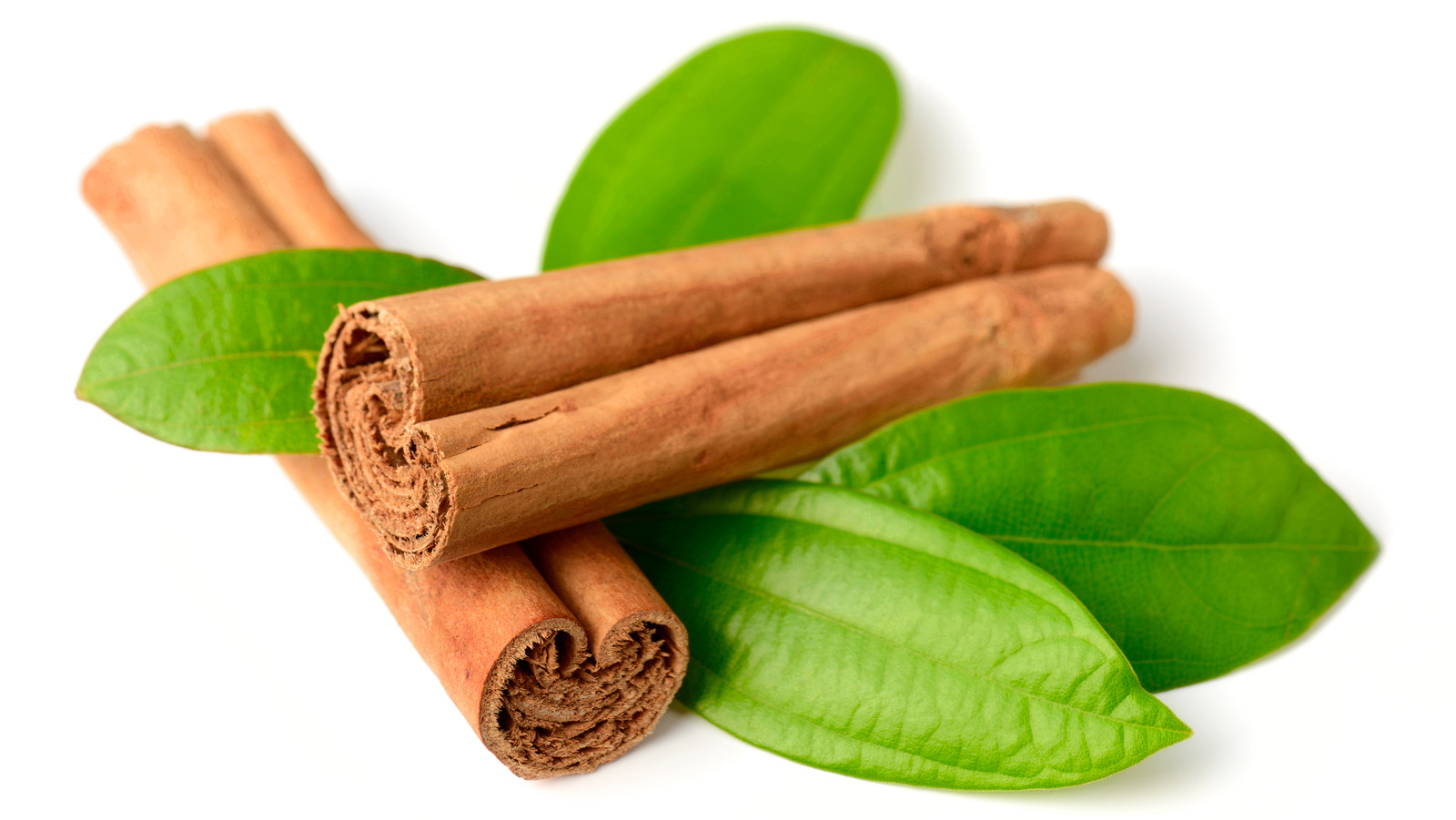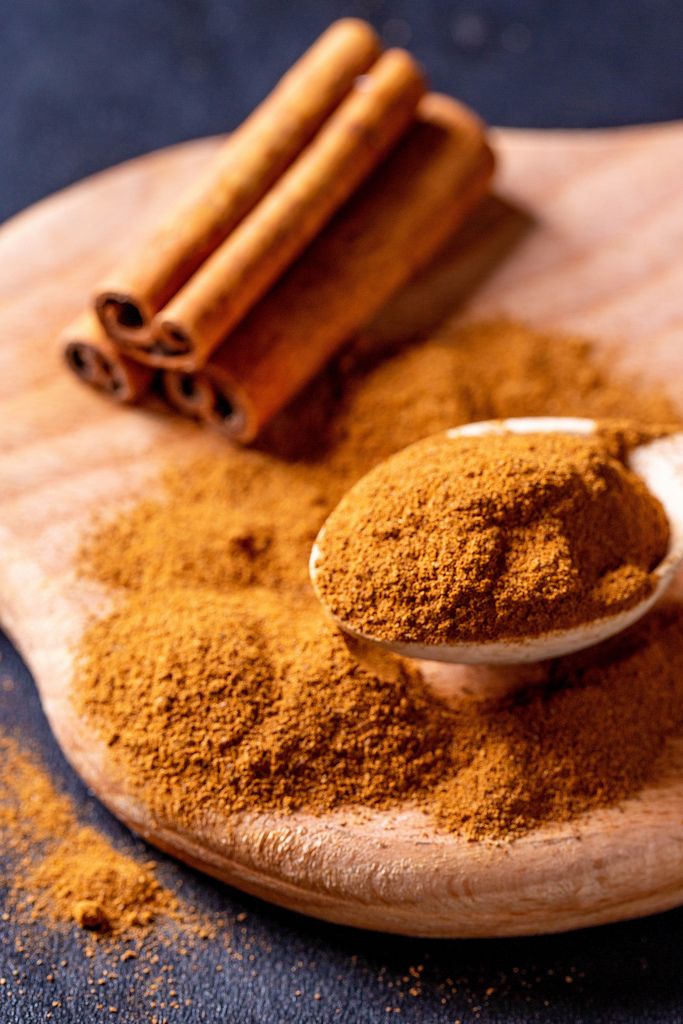
What is Cinnamon?
Did you ever stop mid-cinnamon sprinkle over your oatmeal and ask yourself where the incredible aroma is coming from? Cinnamon, with its warm and familiar scent, does have a pretty interesting history. It starts with evergreen trees in a genus called Cinnamomum. The warm-weather trees carry the spice inside their inner bark.
The process is careful. The inner bark of the trees is stripped. When pulled, these strips become dry and curl into coiled rolls. These coiled rolls are the cinnamon sticks we know. Surprisingly, they also have a unique name, quills. These quills are not for show only; you can chew them or steep them in hot water to produce cinnamon tea.
While sticks or quills of cinnamon do offer a certain rustic appeal, it’s the ground form that most of us use in cooking. Once those dry sticks are finely ground, they become that cozy powder we enjoy sprinkling into cookies, coffee, and more. It’s this ease of moving from bark to powder that contributes to cinnamon being such a staple spice in so many households.

Beyond Desserts: Versatile Culinary Uses
Cinnamon is a sweet food to everyone, and they associate it with cookies, rolls, and pastries. And while that’s much of its charm, cinnamon has a larger role to play in the kitchen than most people are aware. It goes very well with savory food as well.
As dietitian Erin Palinski-Wade suggests, “Cinnamon can be added to many foods ranging from sweet to savory.” That is, it’s invited to your apple pie and some of your savory dishes like chili, stews, and some rice dinners. Cinnamon adds flavor to a meal without overwhelming it.
Begin your day with oatmeal sprinkled with cinnamon and then a spice-flavored stew for breakfast. Cinnamon deepens the flavor of drinks such as apple cider, hot chocolate, and mulled wine. It also shows up in candy and chewing gum. Another benefit? Cinnamon is a natural preservative. Palinski-Wade illustrates that this keeps food fresh for a longer time, so it is a useful ingredient as well.

Distinguishing Among the Types: Ceylon vs. Cassia
Not all cinnamon is created equal, and understanding the difference can really level up your cooking, and maybe even your health. The two most common types you’ll come across are Ceylon and Cassia. Each brings its own flavor and qualities to the table.
Ceylon cinnamon, commonly referred to as “true cinnamon,” is lighter and sweeter in flavor with a more subtle and refined taste. It even has a very slight hint of citrus, which is why it’s especially popular for those who like the flavor to be more subtle. Generally higher in cost, it’s sometimes recommended for its superior flavor and lower coumarin content. Ceylon cinnamon is known as Cinnamomum verum.
More readily available and common is Cassia cinnamon, or Cinnamomum cassia. It is more potent, has a stronger flavor, and darker in hue. That is what is sold in supermarket aisles.
Even if they appear similar, they are different in terms of scent, flavor, and their impact on health. Ceylon is preferable for everyday use, particularly as it has less coumarin. Knowing the difference is being smart in decisions.

Cinnamon’s Surprising Nutritional Profile
Cinnamon is more than a flavor. This spice contains nutrients that can benefit your health.
There are carbohydrates in cinnamon for energy and fiber for digestion. Even small portions can make a difference. There is also a small amount of protein.
Where cinnamon shines is in its vitamin and mineral content. You’ll find small but notable amounts of calcium, iron, magnesium, and potassium. These elements help with everything from bone health to muscle function. Cinnamon also contains vitamins A and K.
The nutritional value of cinnamon may be small per serving, but it enhances the overall benefit of any dish.

Sweet Help for Blood Sugar Management
Cinnamon will help in maintaining normal blood sugar. Erin Palinski-Wade explains that cinnamon can assist with “improving insulin sensitivity” so the body can have a healthier utilization of glucose.
Science has established that half a teaspoon a day will manage glucose. This is useful for those who need to stabilize energy or even the prevention of diabetes.
Cinnamon is a sugar-free seasoning. Kate Donelan describes it as being “able to deliver flavor and sweetness without calorie addition.” It is thus easily converted to use by anyone keeping tabs on sugar consumption.

Conquering Stress and Inflammation with Cinnamon
There are also protective chemicals in cinnamon. Sitting atop of them are antioxidants phenols, which are tasked with destroying harmful molecules. Jen Messer describes these chemicals as protecting against oxidative stress.
Cinnamon can also provide anti-inflammatory activity. Inflammation over the long term is associated with heart disease and cancer. It’s reduced by diet-related mechanisms such as cinnamon providing preventative medicine.
Adding cinnamon is not just for flavoring;
it’s also about lowering your body’s burden of stress at the cellular level.
1. Sweet Relief for Cholesterol
Cinnamon may benefit the heart, too. Daily cinnamon administration has been found to lower LDL cholesterol, the “bad” cholesterol.
High LDL levels increase the risk of cardiovascular issues. Including cinnamon in your diet could help support healthy cholesterol levels.
It’s pretty great that something so tasty might help keep your heart healthy.
2. Soothing Those Tummy Troubles
Cinnamon has a long history as a digestive aid. If you’ve had bloating, gas, or discomfort after a meal, cinnamon might help.
Its carminative action alleviates flatulence. Cinnamon relaxes the digestive system and alleviates cramping.
Adding cinnamon to food or beverages can stimulate digestion, particularly after overindulging.
3. Brain Health Boost: Early Promises
There’s some evidence that cinnamon can benefit brain function. Certain early research indicates that chemicals in cinnamon shield brain cells.
There is scientific interest in its potential to combat disease like Alzheimer’s. Although still very much in its early stages, the potential is promising.

A favorite spice can keep your mind sharp. How wonderful is that?
Hiking Over Unproved Claims: What to Be Aware Of Since the popularity of cinnamon has grown, health claims get oversold. Be alert.
Be aware of claims that cinnamon leads to weight loss or melts fat around the belly. Though it combines nicely with a balanced diet, it is no wonder drug.
An informed perspective allows you to take pleasure in cinnamon’s real benefits without being a casualty of myths.

Wise Use of Cinnamon: Risks, Caution, and Discovering Your Limit
Cinnamon is safe but not in excess. Excess consumption, particularly supplements, can cause side effects such as allergies or stomach problems.
Cassia cinnamon contains higher coumarin, which, in excess, is poisonous. It is advisable to use Ceylon cinnamon for daily use.
Take about a teaspoon daily. If pregnant or on medication, consult your doctor. And because cinnamon affects gut bacteria, include probiotic foods to keep things balanced.

Picking Quality and Bringing Cinnamon into Your Kitchen (and Life!)
Second, pick quality. Pick organic, non-irradiated, well-marked cinnamon, ideally Ceylon.
Keep it in a cool, dry place to maintain freshness. Use ground cinnamon for cookies and breakfast foods, and sticks for flavor depth in beverages and stews.
Cinnamon is more than a spice. Experiment with it in skin care, candles, or tea. Mix it with natural toothpaste or face masks.
With all these applications, cinnamon transcends the status of spice. It’s a soothing, multi-purpose necessity that adds to daily life, your kitchen to your health.





